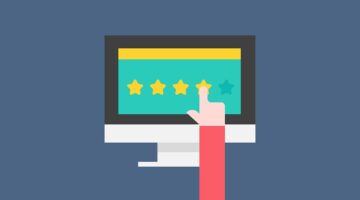 Confession time:
Confession time:
- I didn’t take a bar trip — and started working the Monday after taking the Texas bar exam.
- While in Biglaw, I worked during holidays (a few hours here and there), even on Christmas.
- I only took a week off for my wedding and honeymoon combined (and worked some of the time). It was the longest vacation I had had in private practice.
- While in Biglaw, I worked a little during my maternity leave.
- The worst and most regrettable? I missed my grandmother’s funeral services and only made her burial because of trial.
While I’d normally say, “don’t judge,” you absolutely should.

Private Practice Lawyers: Rater Your Work With In-House Counsel
Please share your thoughts in this brief and anonymous survey.
I do.
Looking back, I wonder what was wrong with me. And I can’t place the blame on Biglaw or the “system” alone. Much of the responsibility is mine. For example, I didn’t dare tell the partner that I had my grandmother’s funeral because I didn’t want to lose the rare opportunity to argue in trial. That poor decision was all on me.
With that backdrop, my reason for sharing such shameful confessions is to punctuate a big difference between private practice and in-house life — at least from my personal experience.
When I was in private practice, my entire identity and self-worth was wrapped around how many hours I billed; how available and responsive I was to my clients, whether internal or external, whether actual or prospective; and how much I martyred my life to be a good firm citizen.

How MyCase’s Smart Spend Can Help Increase Your Profits
This tweak to your financial management seems like a no-brainer.
But when I moved in-house, the culture was refreshingly (and shockingly) different. While the workday can be long, there is an expectation that it stops, and the rest can be picked up tomorrow. Instead of weekend work being the norm, it became the exception. My clients respect that I am on vacation, seldom bothering me unless truly urgent — and I also have peace of mind knowing that my in-house colleagues have it covered and that the company business continues, even if I am not available.
In contrast to my prior fear that partners wondered why I wasn’t in the office and questioned my commitment to the firm, my general counsel openly talks about about preventing burnout, the importance of mental health, and she encourages us to use our vacation. My associate general counsel does the same, and takes the time to ask me about my workload when she sees more after-hours emails than usual and often emphasizes how irreplaceable this time with my kids is and how sleep is critical to health.
Part of why I love being in-house so much is that it gave me the space to be a whole person (and not just a lawyer) — and while I suspect that experiences may differ depending upon what company you work for, I would be remiss if I didn’t share this perspective in case a transformational opportunity similarly opens up for my firm friends.
 Meyling “Mey” Ly Ortiz is in-house at Toyota Motor North America. Her passions include mentoring, championing belonging, and a personal blog: TheMeybe.com. At home, you can find her doing her best to be a “fun” mom to a toddler and preschooler and chasing her best self on her Peloton. You can follow her on LinkedIn (https://www.linkedin.com/in/meybe/). And you knew this was coming: her opinions are hers alone.
Meyling “Mey” Ly Ortiz is in-house at Toyota Motor North America. Her passions include mentoring, championing belonging, and a personal blog: TheMeybe.com. At home, you can find her doing her best to be a “fun” mom to a toddler and preschooler and chasing her best self on her Peloton. You can follow her on LinkedIn (https://www.linkedin.com/in/meybe/). And you knew this was coming: her opinions are hers alone.